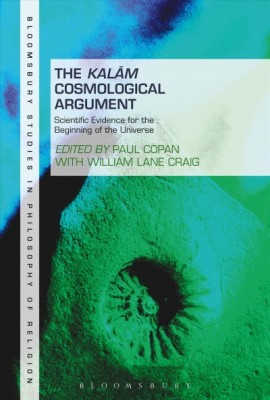| The Kalam Cosmological Argument, Volume 2: Scientific Evidence for the Beginning of the Universe Contributor(s): Copan, Paul (Editor), Craig, William Lane (Editor) |
|||
 |
ISBN: 1501335871 ISBN-13: 9781501335877 Publisher: Bloomsbury Publishing PLC
Binding Type: Hardcover - See All Available Formats & Editions Published: November 2017 Click for more in this series: Bloomsbury Studies in Philosophy of Religion |
||
| Additional Information |
| BISAC Categories: - Philosophy | Religious - Science | Philosophy & Social Aspects - Philosophy | Ethics & Moral Philosophy |
| Dewey: 212.1 |
| LCCN: 2017026467 |
| Series: Bloomsbury Studies in Philosophy of Religion |
| Physical Information: 1.2" H x 6.2" W x 9.1" L (1.49 lbs) 376 pages |
| Features: Bibliography, Dust Cover, Index |
| Descriptions, Reviews, Etc. |
| Publisher Description: The ancient kalam cosmological argument maintains that the series of past events is finite and that therefore the universe began to exist. Two recent scientific discoveries have yielded plausible prima facie physical evidence for the beginning of the universe. The expansion of the universe points to its beginning-to a Big Bang-as one retraces the universe's expansion in time. And the second law of thermodynamics, which implies that the universe's energy is progressively degrading, suggests that the universe began with an initial low entropy condition. The kalam cosmological argument-perhaps the most discussed philosophical argument for God's existence in recent decades-maintains that whatever begins to exist must have a cause. And since the universe began to exist, there must be a transcendent cause of its beginning, a conclusion which is confirmatory of theism. So this medieval argument for the finitude of the past has received fresh wind in its sails from recent scientific discoveries. This collection reviews and assesses the merits of the latest scientific evidences for the universe's beginning. It ends with the kalam argument's conclusion that the universe has a cause-a personal cause with properties of theological significance. |
| Customer ReviewsSubmit your own review |
| To tell a friend about this book, you must Sign In First! |